True to form, as today is my work anniversary, let's follow-up on the tradition of posting a blog. Recall last year's entry http://vzimmer.blogspot.com/2022/02/25-or-anniversarynext10-and-early-22.html. When I am posed with the challenge of posting on a given day, sometimes my mind alights upon various data points observed during the earlier hours. The first thing I noticed today was https://twitter.com/osfw_foundation/status/1629217731395350529 which pointed to the longer blog posting https://blog.osfw.foundation/breaking-the-boundary-a-way-to-create-your-own-fsp-binary/.
This is penned by Subrata and describes some of the techniques to minimize the size of the Intel FSP. I appreciate the review of this work at https://www.phoronix.com/news/Google-Intel-More-FSP-Flexible, too.Speaking of Apress co-authors, today on the Twitter-stream I also saw https://twitter.com/UEFIForum/status/1628107294134108183
which describes an upcoming talk (now 'past' https://www.youtube.com/watch?v=BI9DMAOZR1I https://uefi.org/sites/default/files/resources/USF_Security_Webinar_Final.pdf) with Jiewen Yao, my Apress '20 https://link.springer.com/book/10.1007/978-1-4842-6106-4 co-author and long-time collaborator.
Since these two data points are about sharing knowledge, and today's post entails a milestone on my career, I was reminded of some wisdom I received from an engineering luminary early in my career. Specifically, the posting https://twitter.com/siliconinsid/status/1628917395501813762 mentioned Robert Pease https://en.wikipedia.org/wiki/Bob_Pease.
Speaking of the wikipedia bio, I can say that Rob used 'RAP' in his personal, correspondence.
" Although his name was listed as "Robert A. Pease" in formal documents, he preferred to be called "Bob Pease" or to use his initials "RAP" in his magazine columns."
When he was he was 54 when he shared some thoughts with a 24 year old engineer.
I picked up my undergraduate degree in electrical engineering and my first job was doing embedded systems for real-time data acquisition. I was a big fan of Electronic Design magazine and an avid reader of Pease. When my job expanded from the real-time control firmware into working on the analogy-side of the sensor subsystem, I reached out to RAP with some questions.
I dug up the correspondence, with the following envelope
In response to this mail, I was amazed that I received a 3-page response from Pease
(2 of 3)
(3 of 3)
To me Pease was my first encounter of the silicon valley culture wherein engineers revel in helping each other and sharing knowledge. Fast forward to a few years ago and Intel. The spirit of helpfulness and wisdom were something I also observed in folks like Jim Keller https://en.wikipedia.org/wiki/Jim_Keller_(engineer). I was reminded of Keller when reading/watching the interview https://morethanmoore.substack.com/p/interview-with-jim-keller-tenstorrent https://www.youtube.com/watch?app=desktop&v=fOUB73dZXEo. This was pure Jim. And his wisdom about 'the big ball of mud' https://blog.codinghorror.com/the-big-ball-of-mud-and-other-architectural-disasters/ https://www.cin.ufpe.br/~sugarloafplop/mud.pdf and the need for modularity and re-writes echoes some of the Intel-time wisdom he relayed. At the time KKeller was probably 60, and I was much closer in age to him.
I recall a specific encounter in a conference room at the Robert Noyce building with a nearby view similar to the images from http://vzimmer.blogspot.com/2020/10/silicon-valley-innovation-and-logos.html. Jim would come into the discussions aggressive and strident, but if you had your data and could defend your position, he'd enjoin the discussion deeply.
To me Pease and Keller were similar souls, having traveled through myriad engineering projects and collected learnings that each would happily share.
Although I lack both the wisdom and charisma of the two, I try in my own small way and encourage others to be similar mentors and purveyors of their learnings in the engineering community.
PS
Speaking of my undergrad and Cornell, I couldn't help but think of Scott Galloway and his quotation " Hermes-ification of their institutions" https://www.businessinsider.com/scott-galloway-what-america-gets-right-and-wrong-college-education-2021-4 after seeing the following statistic, viz.
Coming from Texas I didn't know much about the Ivy League, but arriving in NY I learned that Cornell was the more accessible of the Ivy's, as composed to Harvard and Yale.
Yikes.
Beyond some of the headline-grabbing quotes of Galloway, though, I would recommend reading his book https://www.amazon.com/Algebra-Happiness-Pursuit-Success-Meaning/dp/0593084195. I've heard said is that the mark of a good book is one you'd read twice. I have to admit the Algebra of Happiness is one that I've at least iterated twice.
PPS
Speaking of authors whose work I enjoy and the spirit of engineering information sharing from the valley, https://www.righto.com/2023/02/8086-interrupt.html has a fascinating write-up on 8086 interrupt support. Ken's work is more generally described in his various talks, such as https://podcasts.apple.com/us/podcast/ken-shirriff/id1488187473?i=1000506639971 and https://www.youtube.com/watch?v=TKi1xX7KKOI.This reminded me of my first file & issued patent (now expired) https://patents.google.com/patent/US5940587A/en, which used some trickery of the segments and the interrupt table to save space in the BIOS. Good times.
PPS+
I just saw the following image
I had similar struggles with Java in 1997 in building the web crawler I had to build at UW for Weld's AI course mentioned in http://vzimmer.blogspot.com/2021/01/memories-from-uw-and-cornell.html. Although Larry and I had similar Java challenges in the late 90's, it appears that our respective careers took different arcs.


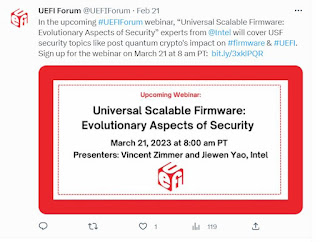


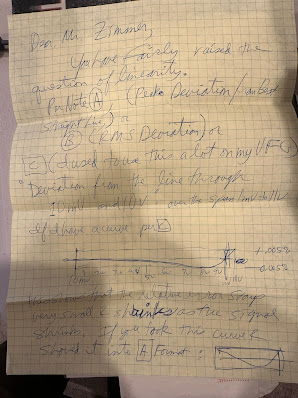
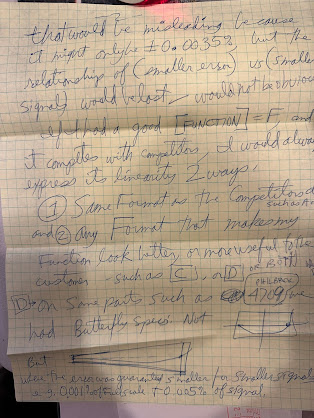
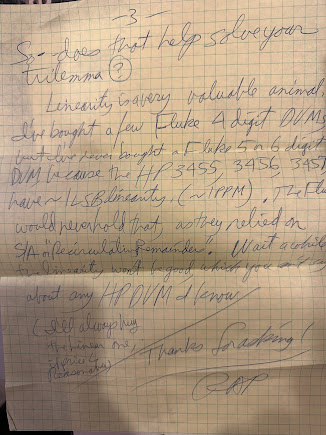

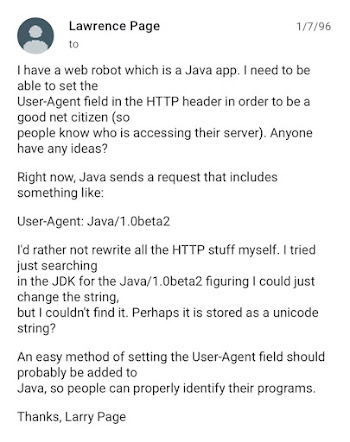
No comments:
Post a Comment